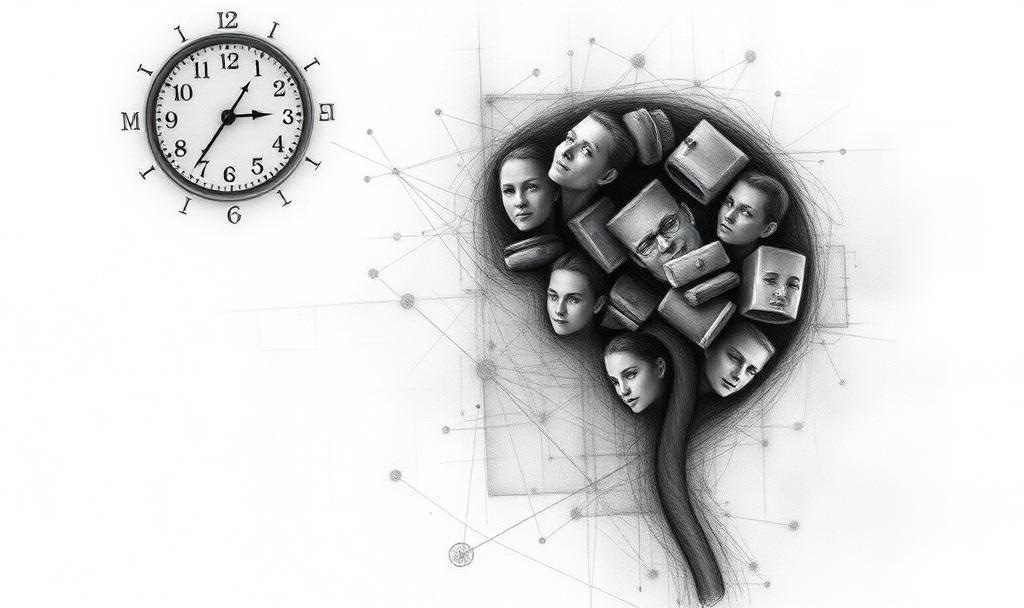Is Technology Fading Our Memory?
How digital habits may be rewiring our brains—and what we can do about it
The other day, out of nowhere, I struggled to remember the password to unlock my laptop. Then I blanked on my debit card PIN—just because I hadn’t used it in a while. It hit me: I used to be the kind of person who remembered everything from birthdays, phone numbers, even random trivia—no reminders, no notes, no social media alerts. Just memory! But lately, these little lapses have started to show up more often, and I can’t help but wonder: Is my memory fading?
Sure, aging might play a role. But it’s still unsettling when these moments become more frequent.
It made me think—are we slowly outsourcing our brain’s natural ability to recall and store information? We know memory formation is all about the connections between neurons. And those connections need to be activated regularly to stay strong. If we’re not using them, are we losing them?
This brings me to a term I came across recently: Digital dementia. Yes, it’s a real thing. Coined by German neuroscientist Manfred Spitzer in 2012, it refers to the cognitive decline that may result from overusing digital technology—especially among younger generations. In his book, Spitzer warns:
“Those who spend a lot of time using audiovisual media in childhood have already affected the brain development, especially the normal development of speech.”1
That’s a pretty serious claim. And while more research is needed to fully understand the long-term effects of tech on our brains, it’s worth asking: What can we do to protect our cognitive health?
Here are a few simple habits that can help:
Write by hand: One of the easiest ways to boost memory is to engage your hands. Try journaling or jotting down notes instead of typing everything. Curious why this works? Check out “The Neuroscience Behind Writing: Handwriting vs. Typing—Who Wins the Battle?”
Practice mindfulness: Being present helps strengthen attention and memory. Even a few minutes a day can make a difference.
Seek meaningful experiences: The more emotionally engaging or novel an experience, the more likely it is to stick in your memory.
Set boundaries with devices: Give your brain a break. Schedule tech-free time to recharge mentally.
Play memory games: Just a few minutes of brain training—like puzzles or logic games—can help keep your mind sharp.
Let’s be clear: Technology isn’t the enemy. Its impact on our cognitive health depends on how we use it. So the choice is ours—do we let tech shape our minds, or do we take charge and protect our mental well-being?
And speaking of brain training, want to try a quick memory booster? You guessed it—Sudoku!2
Grab a pen and paper, and give it a go. It’s a fun way to flex your memory and sharpen your critical thinking skills.
https://en.wikipedia.org/wiki/Sudoku
—Preetha Devan | Senior Consultant | Office of the CTO
This article contains general information only and Deloitte is not, by means of this article, rendering accounting, business, financial, investment, legal, tax, or other professional advice or services. This article is not a substitute for such professional advice or services, nor should it be used as a basis for any decision or action that may affect your business. Before making any decision or taking any action that may affect your business, you should consult a qualified professional advisor. Deloitte shall not be responsible for any loss sustained by any person who relies on this article.
As used in this document, “Deloitte” means Deloitte Consulting LLP, a subsidiary of Deloitte LLP. Please see www.deloitte.com/us/about for a detailed description of our legal structure. Certain services may not be available to attest clients under the rules and regulations of public accounting.
Copyright © 2025 Deloitte Development LLC. All rights reserved.








I think the write by hand may legit help. I do it sometimes and I feel like my mind is in a different space